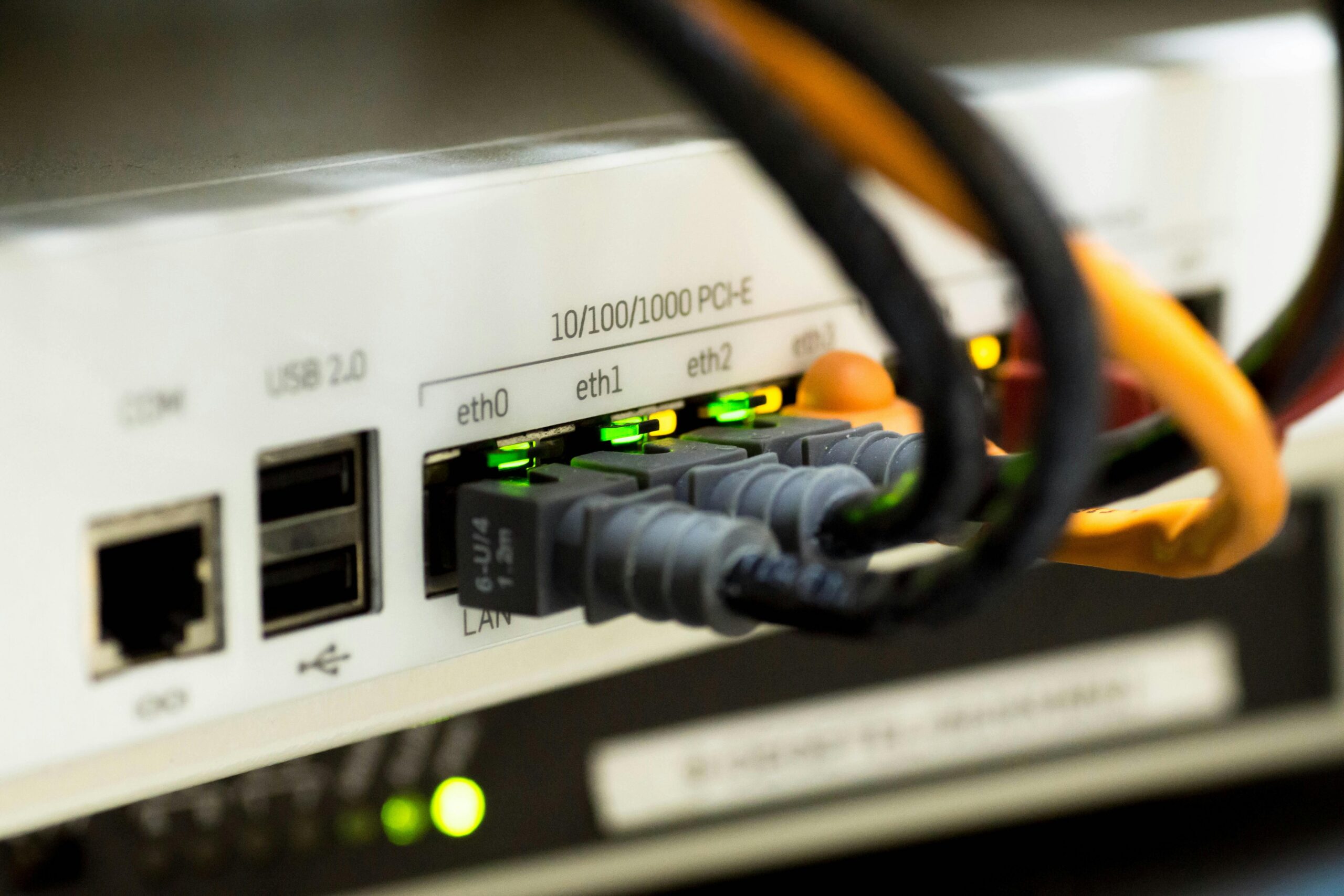Have you ever wondered what makes your internet work? The answer lies in a small but powerful device quietly doing its job: the router. It’s the invisible hero behind every Wi-Fi connection in your home, office, or favorite coffee shop.
In our digital age, where remote work, online gaming, smart homes, and streaming dominate daily life, understanding how a router works is no longer optional—it’s essential. This article will explain what a router is, how it works, why you need one, and how to pick the right one for your needs.
What Is a Router?
A Simple Definition
A router is a device that connects multiple devices (like smartphones, laptops, and smart TVs) to the internet. It allows these devices to communicate with each other within a network and access the web through a shared connection.
A Quick History
The first routers were used in the 1970s to connect different computer networks. Over time, as the internet became mainstream, routers evolved into consumer-friendly devices found in nearly every home and office.
Types of Routers
- Wired Routers: Use Ethernet cables to connect devices.
- Wireless Routers: Provide Wi-Fi to connect devices without cables.
- Dual-Band Routers: Operate on 2.4GHz and 5GHz frequencies.
- Tri-Band Routers: Include an extra 5GHz band for less congestion.
What Does a Router Do?
- Manages Data Traffic: It directs data packets between devices and the internet, ensuring information gets where it needs to go.
- Assigns IP Addresses: It gives each connected device a unique identifier within the network.
- Routes Information: It decides the best path for data to travel.
- Provides a Firewall: It blocks unauthorized access to your network.
Think of a router like a traffic cop for your internet, making sure every bit of data reaches the right device smoothly and safely.
How Does a Router Work?
Routing Data Packets
When you click a link or play a video, your device sends a data request to the router. The router packages that request and sends it through your modem to your Internet Service Provider (ISP), which connects to the web.
WAN vs. LAN
- WAN (Wide Area Network): The external internet.
- LAN (Local Area Network): Your internal home or office network.
Modem vs. Router
- Modem: Brings the internet from your ISP to your home.
- Router: Distributes the internet connection to your devices.
Real-Life Example
You open YouTube on your phone. The router receives the request, sends it through the modem to YouTube’s servers, receives the video data back, and routes it to your phone.
Why Do I Need a Router?
All of your gadgets will be able to connect to the internet and to each other through the router. Wi-Fi sends out a wireless signal, but the router handles data traffic, gives IP addresses, and makes sure that multiple devices can connect to the internet at the same time without any problems. It also makes things safer by letting you set passwords, parental controls, and filters and controlling who can connect to the network. It would be hard for smartphones, computers, smart TVs, and other devices to share a single internet link without a router. This is why routers are an important part of any home or office network.
Types of Routers and Which One You Need
| Type | Best For | Features |
|---|---|---|
| Standard Home Router | Small to medium homes | Dual-band, basic parental controls |
| Mesh Router | Large or multi-story homes | Seamless coverage, multiple access points |
| Gaming Router | Online gamers | Low latency, QoS, advanced processing |
| 4G/5G Mobile Router | Travelers or no fiber area | Uses SIM card, portable, battery-powered |
Tip: For busy households with streaming, gaming, and smart devices, a mesh or tri-band router is worth considering.
Key Features to Look For in a Router
- Wi-Fi Standards:
- Wi-Fi 5 (802.11ac): Good
- Wi-Fi 6 (802.11ax): Better (faster, more efficient)
- Bands:
- Dual-band: Two frequencies (2.4GHz + 5GHz)
- Tri-band: Adds another 5GHz band for crowded networks
- Parental Controls: Restrict websites, screen time, etc.
- QoS (Quality of Service): Prioritize traffic (e.g., gaming > downloads)
- VPN Support: Protect your entire network
- Ports: USB, Gigabit Ethernet
- Guest Network: Allow visitors internet access without sharing your main password
- Mobile App Control: Manage settings from your phone
How modems differ from routers
A router and a modem are both ways to connect to the internet, but they do different things. A modem is the piece of equipment that talks to your Internet Service Provider (ISP) and turns the signal from your cable, fiber, or DSL link into a connection that you can use. A router, on the other hand, takes the internet link from the modem and sends it to multiple devices through Ethernet or Wi-Fi cables. It also controls network traffic and security. To put it simply, the modem connects your devices to the internet, and the router makes sure that all of them can safely use it.
Common Router Terms Explained Simply
- IP Address: Unique number for each device in your network.
- SSID: The name of your Wi-Fi network.
- Bandwidth: The amount of data your connection can handle.
- NAT (Network Address Translation): Converts private IPs to a public IP for the internet.
- DHCP: Automatically assigns IP addresses.
- Firewall: Security system that blocks harmful internet traffic.
Why Should You Upgrade to a New Router?
If you want faster speeds, better service, and better security, you should get a new router. It’s possible that older routers don’t support the newest Wi-Fi standards. This could make newer devices less responsive and create dead spots or slow links in your home. Many newer models come with extras like dual-band or tri-band Wi-Fi, better parental settings, QoS (Quality of Service) for prioritizing traffic, and stronger encryption to keep your network safe from hackers. By upgrading, you can make sure that your internet can join more devices at once, stay connected more reliably for streaming or gaming, and offer new features that make things easier and safer.
Tips for Setting Up and Using Your Router
- Placement: Put your router in a central, open area (not behind furniture).
- Change Default Settings:
- SSID and password
- Admin panel credentials
- Update Firmware: Keep your router secure and running well.
- Use Mobile App or Web Portal:
- Access via IP (e.g., 192.168.1.1)
- Or download the brand’s mobile app (e.g., TP-Link Tether, Netgear Nighthawk)
Conclusion
A router is more than just a tech box sitting in a corner—it’s your digital gateway. It connects, protects, and powers your digital life. From streaming to smart homes, work-from-home setups to online gaming, your router does it all behind the scenes.
If you’re still using an old router or relying on your ISP’s basic hardware, now’s the time to upgrade. A better router means faster, safer, and more reliable internet.
FAQs
What is a router and why do I need it?
A router is a device that connects multiple devices to the internet and manages traffic between them. You need it to share a single internet connection across computers, phones, and smart devices.
Can I use my phone as a router?
Yes, you can use your phone as a mobile hotspot, which allows other devices to connect to the internet through your phone’s data connection.
How do I set up a router?
Connect the router to your modem or internet source, power it on, and access the admin portal (usually via a web browser like 192.168.0.1 or 10.0.0.1) to configure Wi-Fi name, password, and other settings.
Do I need a router if I have Wi-Fi?
Yes, Wi-Fi is just the wireless signal, while a router manages the connection between your devices and the internet. Without a router, you cannot connect multiple devices or manage your network efficiently.
Is a router the same as a modem?
No. A modem connects to your ISP. A router shares that connection with your devices.
Can I use the internet without a router?
Yes, but only on one device plugged into the modem. A router allows Wi-Fi and multiple device access.
How long does a router last?
Most routers last 3 to 5 years. Upgrade sooner if you need better speeds, features, or coverage.
Do I need a new router for fiber internet?
Sometimes. Fiber ISPs may provide a modem/router combo, but you can use your own router for better performance.
How can I tell if my router is working properly?
Check for:
- Strong Wi-Fi signal
- Consistent internet speed
- No frequent disconnects
- Blinking green lights on the router
Disclaimer
This article is for informational purposes only. Router features, compatibility, and availability may vary by brand, model, or region. Always check with your internet service provider or product manufacturer before making a purchase.




This is pure gold! So grateful you posted this 🌟